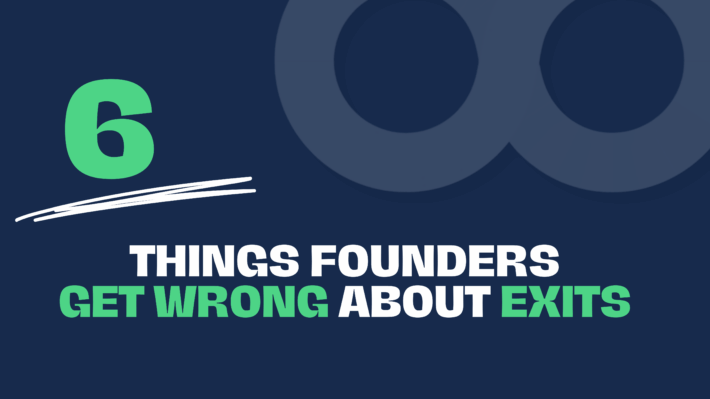Exit Plan vs. Succession Plan: Which Is For You?

When it comes to planning the future of your business, you’ll hear two terms over and over: exit plan and succession plan. While they might sound similar, these paths represent two different ways to transition out of your business and each requires a unique mindset and set of goals.
Understanding the difference between an exit and succession plan can help you choose the best strategy for your business and ensure a smooth transition, whether you’re looking to maximise profit, preserve your legacy, or a mix of both.
Exit Plan: Maximising Value and Moving On
An exit plan is often about preparing to sell your business or transferring ownership, typically to external buyers. Often associated with venture capital (VC) and private equity (PE) firms, an exit plan focuses on maximising the business’s value with the goal of a lucrative sale, merger or acquisition.
Mindset and Values in an Exit Plan
An exit-oriented approach is built around scalability, efficiency and profit. The mindset here is often data-driven and metrics-focused, as potential buyers will want a business that has clear, predictable financials and optimised systems. Here are a few common priorities for business owners with an exit plan in mind:
- Growth and Scalability: With the involvement of venture capital (VC) or private equity (PE), the primary focus is typically on accelerating growth and demonstrating the business potential for scalability and increased profitability.
- Financial Optimisation: Streamlined finances, optimised revenue and cost-efficient processes are key to showcasing value to potential buyers.
- Shorter-Term Goals: Since an exit plan is geared towards a sale, owners often operate with shorter-term goals and metrics that can drive up the business valuation quickly.
Common Buyers in an Exit Plan
In an exit plan, prospective buyers are generally external parties, such as VC or PE firms, or even industry competitors. These groups are typically less interested in preserving the current team or business identity and more focused on potential profits or integrating the business into a larger portfolio. This process often culminates in an acquisition, public sale or merger
Succession Plan: Legacy and Continuity
A succession plan, on the other hand, is focused on keeping the business within its existing structure and maintaining its legacy. This strategy often involves transferring ownership to trusted employees, family members. Succession planning is about continuity and stability and it appeals to owners who prioritise the legacy of their business over a high-dollar exit.
Mindset and Values in a Succession Plan
Succession planning comes with a different mindset altogether. Business owners who adopt this strategy often value relationships, community and continuity. Here are some core values that drive a succession-oriented approach:
- Legacy and Cultural Continuity: Succession plans focus on passing the business to someone who understands and values its culture and mission, keeping its legacy intact.
- Employee Ownership and Stability: Often, succession plans prioritise employee welfare and stability over immediate financial returns, especially if ownership is passed to long-standing employees or managers.
- Long-Term Vision: Unlike exit plans, succession plans are long-term and often involve several years of mentoring and preparation to ensure the new owner or leadership team is prepared to carry on the business.
Typical Successors in a Succession Plan
The typical successor in a succession plan is an insider – senior management, long-term employees or, family members. These groups are more likely to embrace the company’s mission and continue building on its current foundation, which also keeps the company in the community was born in EOTs, are also common in succession planning, allowing employees to take a vested interest in the company’s long-term success.
Key Differences Between Exit and Succession Plans
Here’s a closer look at some of the primary differences in mindset, values and goals between exit and succession plans:.

Choosing the Right Plan for Your Business
Selecting between an exit plan and a succession plan depends largely on your personal goals and values. Here’s what to consider:
- Financial Gain and a Clean Break: An exit plan might be right for you. This is ideal for founders who want to maximise their financial return, perhaps to start a new venture or retire with a substantial financial cushion.
- Employee welfare and Preserving Your Business’s Legacy: A succession plan may be the best choice. If the relationships and mission of your business are priorities, choosing a successor who shares those values will allow your company to thrive as you envisioned it.





